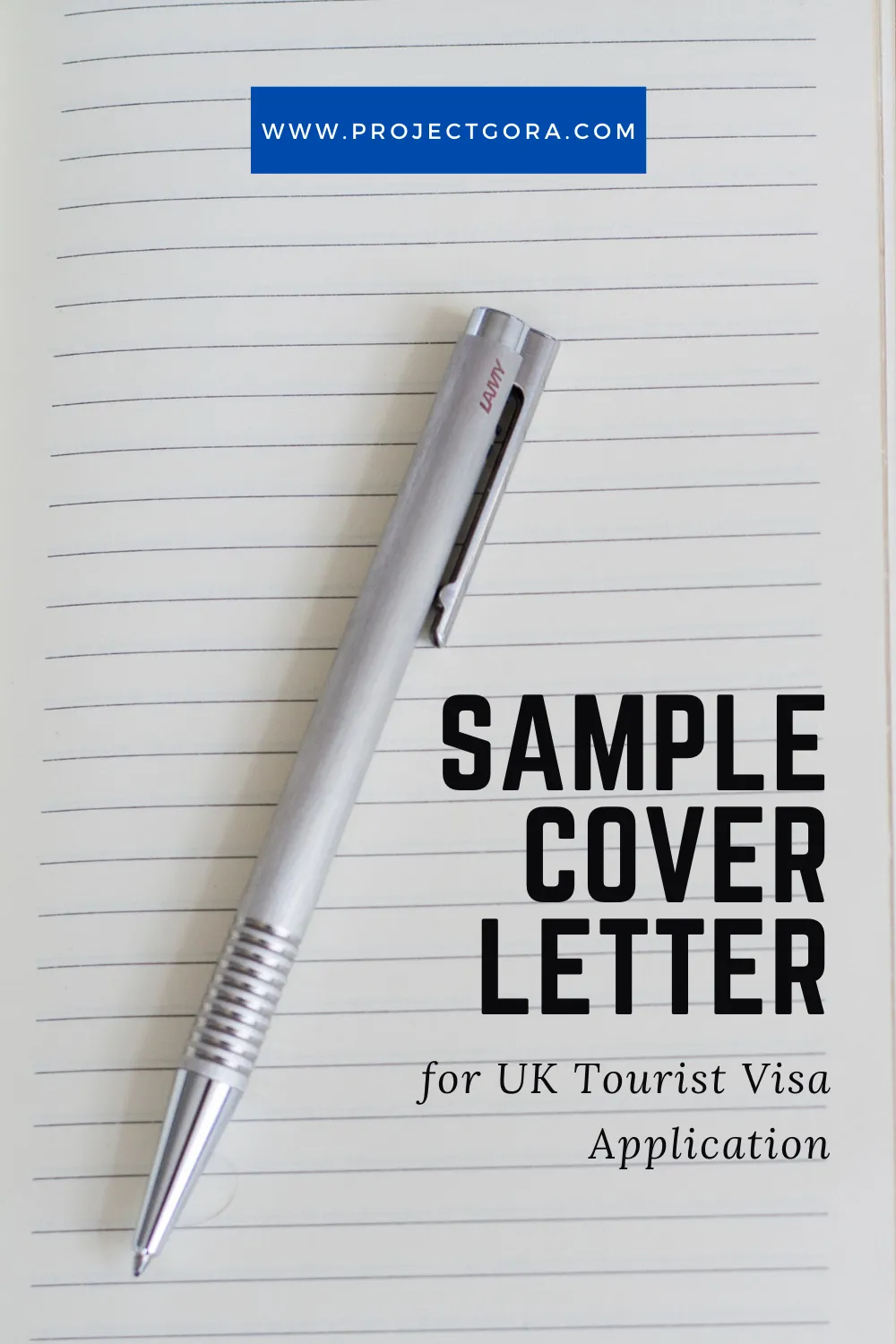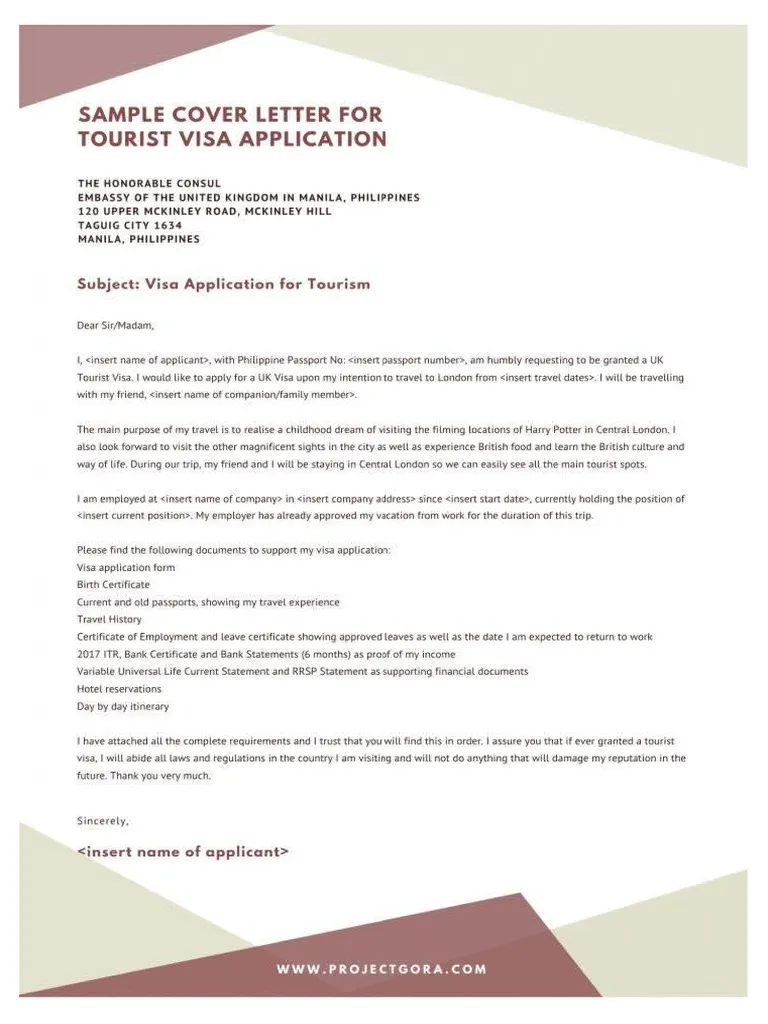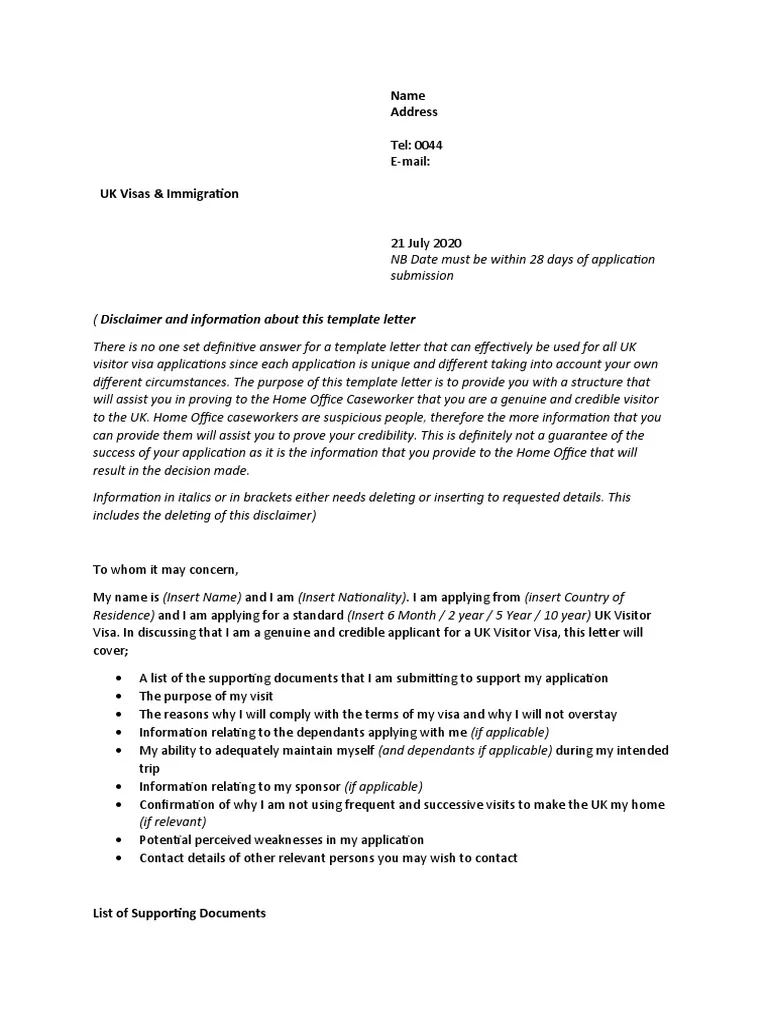Why a UK Visitor Visa Cover Letter is Essential
A UK visitor visa cover letter is a critical document when applying for a UK visitor visa. It serves as a personal introduction to your application, providing context and crucial details that help the visa officer understand the purpose of your visit. A well-crafted cover letter can significantly increase your chances of visa approval by clarifying your intentions, demonstrating your ties to your home country, and providing supporting evidence for your application. It’s your opportunity to make a strong first impression and present your case in a clear, concise, and compelling manner.
Key Components of an Effective Cover Letter
A compelling cover letter should include several key components to ensure clarity and completeness. These elements work together to present a comprehensive picture of your travel plans and financial stability. By addressing each of these sections meticulously, you can create a cover letter that effectively supports your visa application and showcases your genuine intention to visit the UK.
Applicant’s Personal Details

Begin by clearly stating your full name, date of birth, nationality, passport number, and contact information. This section provides the basic identification necessary for the visa officer to easily match your cover letter with your application. Ensure that all details are accurate and match the information on your passport and visa application form. Any discrepancies can lead to confusion or delays in the processing of your visa.
Purpose of Visit
Clearly and concisely state the primary reason for your visit to the UK. Whether it’s for tourism, visiting family, attending a conference, or any other purpose, be specific. For example, instead of saying ‘visiting friends,’ state ‘visiting my friend, [Friend’s Name], in London from [start date] to [end date].’ This clarity helps the visa officer understand the nature of your trip and assess its legitimacy.
Travel Itinerary
Provide a detailed itinerary of your planned activities in the UK. Include specific dates, locations, and activities you plan to undertake. For example, if you plan to visit tourist attractions, list the attractions and the dates you intend to visit them. If you are visiting friends or family, include their addresses and the duration of your stay. A detailed itinerary shows that you have planned your trip thoroughly.
Financial Stability Proof

Demonstrate your ability to financially support yourself during your stay in the UK. Include details about your employment, income, and any other sources of funds you will be using to cover your expenses. If someone is sponsoring your trip, include their details, such as their relationship to you, their financial capacity, and a copy of their bank statements. Providing proof of sufficient funds is essential to convince the visa officer that you will not become a burden on public funds.
Accommodation Details
Clearly state where you will be staying during your visit. If you are staying in a hotel, provide the hotel’s name and address. If you are staying with friends or family, provide their full address and contact information. If you have booked accommodation, include a copy of your booking confirmation. This information confirms your accommodation arrangements and supports the details in your itinerary.
Supporting Documents
List all the supporting documents that you are including with your application, such as bank statements, employment letters, travel insurance, invitation letters, and any other relevant documents. This list helps the visa officer quickly verify that you have provided all the necessary documentation. It’s also a good practice to number your documents for easy reference. Make sure all supporting documents are clear and easy to read.
Drafting Your Cover Letter Step-by-Step

Creating a well-structured cover letter is crucial for a successful visa application. By following a step-by-step approach, you can ensure that you include all the necessary information and present it in a clear and organized manner. This structured approach will help the visa officer easily understand the details of your trip and your reasons for visiting the UK.
Start with a Professional Greeting
Begin your letter with a formal greeting, such as ‘Dear Visa Officer’ or ‘To Whom It May Concern.’ This establishes a professional tone and shows respect for the visa officer. Make sure you spell the greeting correctly and maintain a polite and respectful language throughout the letter. This sets the right tone for the rest of your communication.
Clearly State Your Purpose
In the opening paragraph, clearly state the purpose of your letter and the type of visa you are applying for. For example, ‘I am writing to support my application for a UK Standard Visitor Visa.’ This immediately informs the visa officer about the nature of your application. This ensures that the visa officer knows the context of your application from the very beginning.
Provide Detailed Itinerary

Include a detailed itinerary, as mentioned earlier. Specify the dates of your visit, the places you intend to visit, and the activities you plan to undertake. This level of detail helps the visa officer understand your travel plans and confirm that they align with your stated purpose of visit. Ensure the itinerary is realistic and feasible based on your planned duration of stay.
Explain Financial Resources
Provide clear details of how you will finance your trip. Include information about your employment, income, and any savings you have. If someone is sponsoring your trip, include their details and financial capacity. Attach supporting documents such as bank statements and pay slips. This section is vital for demonstrating that you have the financial means to support yourself during your stay in the UK.
Include Accommodation Information
Specify where you will be staying during your trip. Include the full address of the hotel, guest house, or the person you are staying with. If staying with friends or family, include a letter of invitation from them confirming your stay. Providing accurate accommodation information is essential for the visa officer to verify your travel plans.
List Supporting Documents

Create a list of all supporting documents you are including with your application. This includes bank statements, employment letters, travel insurance, and any invitation letters. Listing the documents helps the visa officer quickly identify all the evidence you have provided. Make sure the list is accurate and matches the documents you have submitted.
Ending with a Strong Closing
End your letter with a polite and professional closing, such as ‘Sincerely’ or ‘Yours faithfully,’ followed by your full name and signature. If you are submitting an electronic copy, you can type your name and ensure that you have signed the application form. Express gratitude for the visa officer’s time and consideration. This final touch leaves a positive impression.
Common Mistakes to Avoid
Avoid common pitfalls to increase your chances of visa approval. These errors can create doubts about your application. Being aware of these mistakes allows you to prevent them, increasing the strength of your cover letter.
Lack of Clarity

Ensure that your cover letter is clear, concise, and easy to understand. Avoid using vague language or complex sentences that might confuse the visa officer. Use plain language and get straight to the point. The easier your letter is to read, the more likely the visa officer will understand your application.
Inaccurate Information
Double-check all the information you provide for accuracy. Any inaccuracies or discrepancies between your cover letter and supporting documents can raise red flags. Always cross-reference the details, and make sure the information is consistent across all your documents.
Missing Supporting Documents
Ensure that you include all the necessary supporting documents. Failing to include essential documents can lead to your application being rejected. Always follow the guidelines provided by the UK Visas and Immigration (UKVI) to make sure you submit all required documents.
Ignoring the Guidelines

Failing to adhere to the guidelines set by UKVI can result in delays or rejection. Always review the requirements for a UK visitor visa and ensure that your cover letter meets all the criteria. Pay attention to details such as the format, content, and document submission process.
Tips for a Successful Application
Following some tips can significantly improve your chances of visa approval. These are the best practices to make sure your application stands out. Applying these tips makes it easier for the visa officer to understand and approve your application.
Proofread Carefully
Before submitting your cover letter, proofread it meticulously for any spelling, grammatical, or punctuation errors. Errors can create a negative impression. Ask a friend or family member to review your letter as well. A second pair of eyes can catch mistakes you might have missed.
Use a Clear and Concise Language
Write your cover letter in clear, simple language. Avoid using complex jargon or overly formal language. The goal is to communicate your message effectively and efficiently. Use short sentences and paragraphs to make it easy for the visa officer to read and understand your application.
Be Honest and Accurate
Always be truthful and accurate in your cover letter and supporting documents. Providing false information can lead to serious consequences, including a ban from entering the UK. Ensure that all the details you provide are correct and reflect the reality of your situation.
Seek Professional Advice
If you are unsure about any aspect of your visa application, consider seeking professional advice from an immigration lawyer or consultant. They can review your application, provide guidance, and help you avoid common mistakes. Their expertise can be particularly helpful if your situation is complex or if you have any concerns about your eligibility.
Conclusion
Writing a compelling UK visitor visa cover letter is a crucial step in the visa application process. By including all the necessary information, avoiding common mistakes, and following the provided tips, you can significantly increase your chances of approval. Remember to be clear, accurate, and honest in your application. Good luck with your visa application, and enjoy your trip to the UK!
